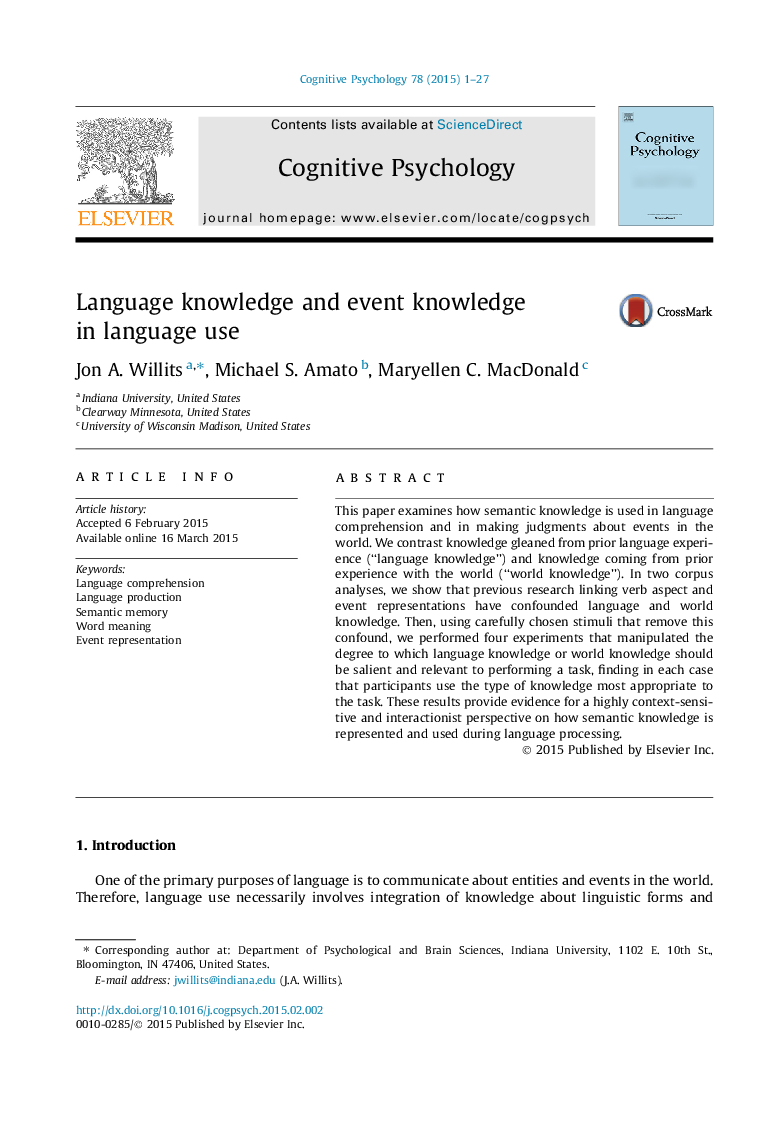| Article ID | Journal | Published Year | Pages | File Type |
|---|---|---|---|---|
| 916850 | Cognitive Psychology | 2015 | 27 Pages |
•Two corpus studies show semantic info from language and world are often confounded.•Two world knowledge-biased experiments show simple effects of relatedness.•Two language-biased experiments show effects of word co-occurrence.•Evidence for exquisitely context-sensitive semantic system.•Considerable implications for theories of semantic memory and language use.
This paper examines how semantic knowledge is used in language comprehension and in making judgments about events in the world. We contrast knowledge gleaned from prior language experience (“language knowledge”) and knowledge coming from prior experience with the world (“world knowledge”). In two corpus analyses, we show that previous research linking verb aspect and event representations have confounded language and world knowledge. Then, using carefully chosen stimuli that remove this confound, we performed four experiments that manipulated the degree to which language knowledge or world knowledge should be salient and relevant to performing a task, finding in each case that participants use the type of knowledge most appropriate to the task. These results provide evidence for a highly context-sensitive and interactionist perspective on how semantic knowledge is represented and used during language processing.
